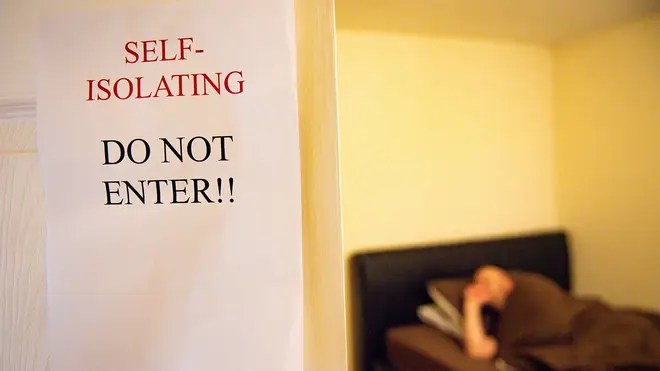
Clive Bull 1am - 4am
17 March 2020, 14:28 | Updated: 19 March 2020, 09:42
Nick Ferrari asked the Deputy Chief Medical Officer all the key questions that listeners wanted to know about the government's advice on self-isolating due to the coronavirus outbreak.
Yesterday, the government issued new advice, advised that Britons stop "non-essential" contact with others, adding that people with the "most serious health conditions” must avoid almost all social contact for 12 weeks.
So how does that work in reality? Nick put their questions to Professor Jonathan Van Tam.
Coronavirus is a new infection that humans haven't encountered before the last three or four months. So from that perspective, we are learning all the time and have incomplete information.
What we can say is a whole variety of infections are more serious to the pregnant woman and from that perspective we are being highly precautionary and saying that social distancing is very important for pregnant women in relation to the coronavirus.
There is, if anything, a small amount of data now that there are some risks associated with the later parts of pregnancy, from 34 weeks onwards. But the data is very limited.
So we are being highly precautionary and saying because we don't have enough information about this disease and pregnant women yet, the safe thing is to social distance from the extent possible.

For the vast majority, this disease is going to be mild and moderate and self-limiting. The vast majority will have an untroubled illness.
The advice that we changed yesterday is to make it very clear that the rule for self-isolation for people with symptoms remains.
But in addition, if you're the person in your household who has symptoms, irrespective of whether they are well or not must self-isolate for 14 days.
We know there are vulnerable individuals and we are saying the advice for those people is very strong indeed. They are over-70 and are typically offered a flu vaccine because of their underlying health conditions.
Sometimes, these vulnerable people live in households with the less vulnerable and will be caught up in the self-isolation or household isolation rules that are now in place.
We're asking people to the extent possible, try to think of a friend or relative who that vulnerable person could go and stay with for 14 days.
We live in the real world and this may not be possible in some circumstances, so in the household, we're saying very clearly, the person with symptoms should keep their distance from the vulnerable person to the extent possible.
We know moving elderly relatives to stay somewhere else won't always be possible, but if it's possible and fairly easily done, then it's absolutely the right thing to do for that 14-day period.